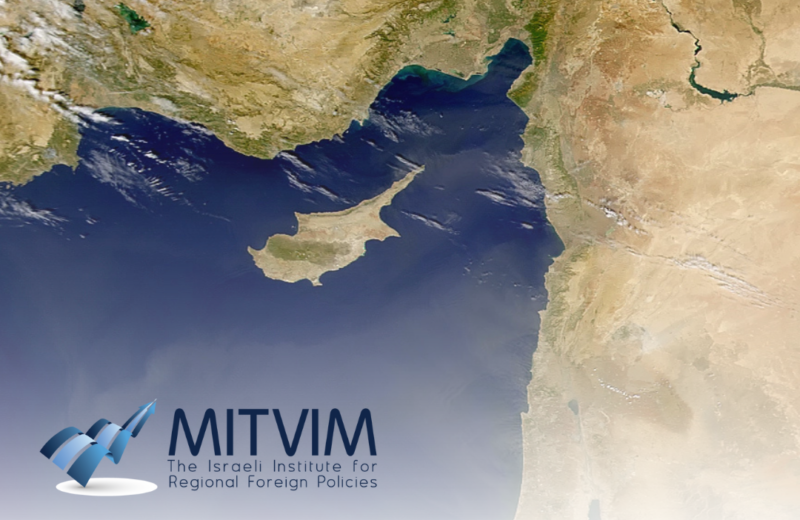
Drawing lines for gas: Lebanon and Cyprus sort their waters out
The two countries at last have a maritime border, letting energy firms search for new gas fields in the Eastern Mediterranean, but the agreement has geopolitical repercussions too.

The two countries at last have a maritime border, letting energy firms search for new gas fields in the Eastern Mediterranean, but the agreement has geopolitical repercussions too.
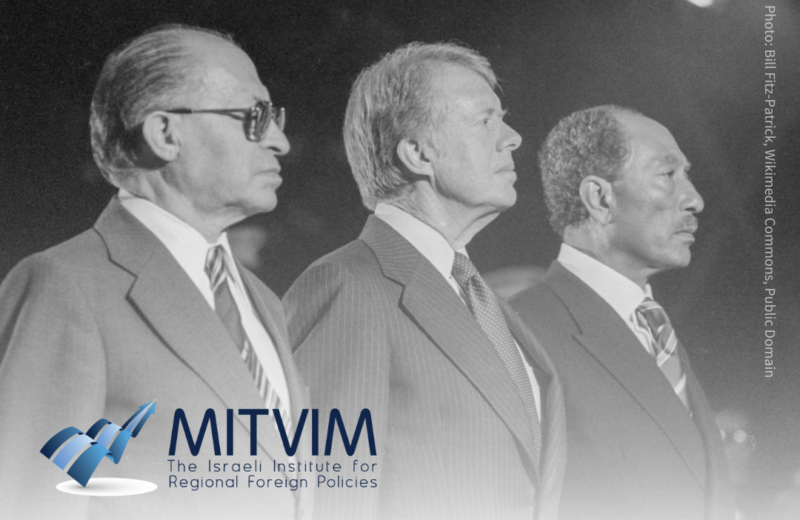
On October 7th, Israeli society was significantly altered in light of the unprecedented trauma. As a direct result, the Israeli political system, which has never excelled in developed civil
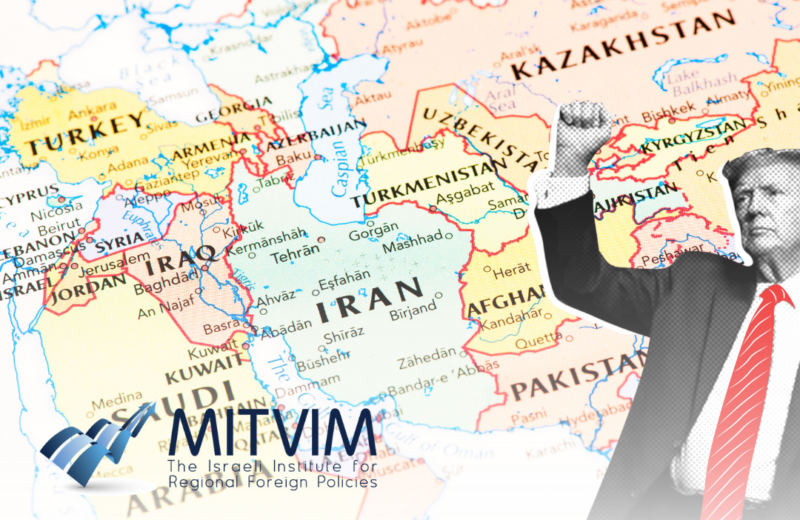
This new configuration is not good news for Israel. Its formation is another unplanned consequence of the war.
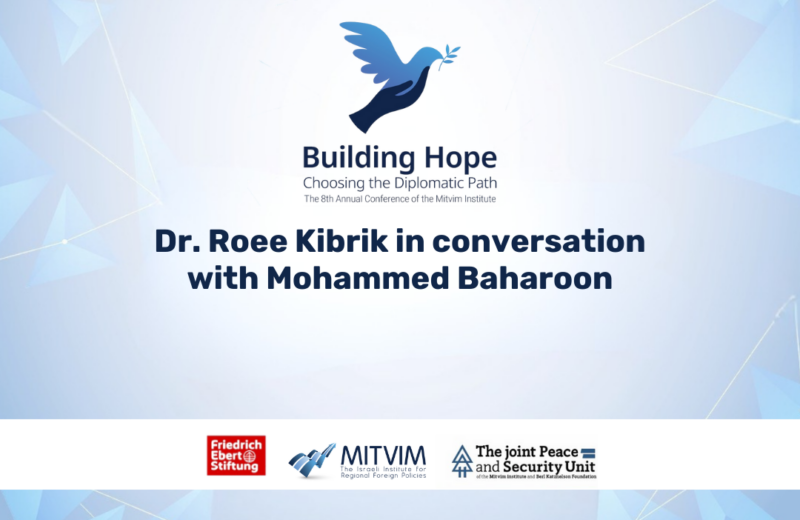
As part of Mitvim Institute’s 8th annual “Building Hope” conference on regional foreign policy, Dr. Roee Kibrik, Director of Research, held an in-depth conversation with Muhammad Baharoon,
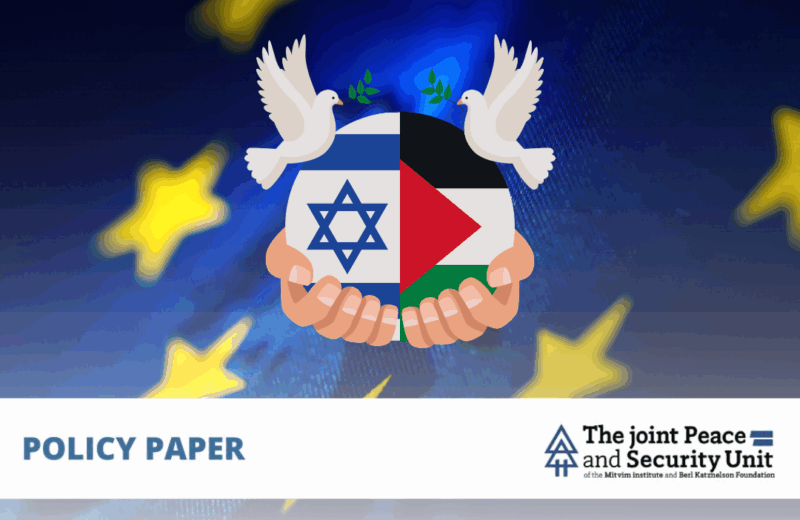
This policy paper proposes the formation of a Euro-Arab coalition to stop the Israeli government accelerated de-facto and possibly de-jure annexation of Area C or parts of it in the West Bank,

"Trump’s business trip to the Middle East presents a new strategic reality: the American president has, for now, chosen to sideline Israel and its considerations in his foreign policy."

Food security has become a critical priority in recent years, driven by the growing impacts of global climate change. As countries develop strategies to ensure stable and sufficient food

Since the outbreak of the war, several Arab states have played supportive roles – Egypt and Qatar as mediators, the United Arab Emirates and Jordan in providing humanitarian aid to Gaza, and
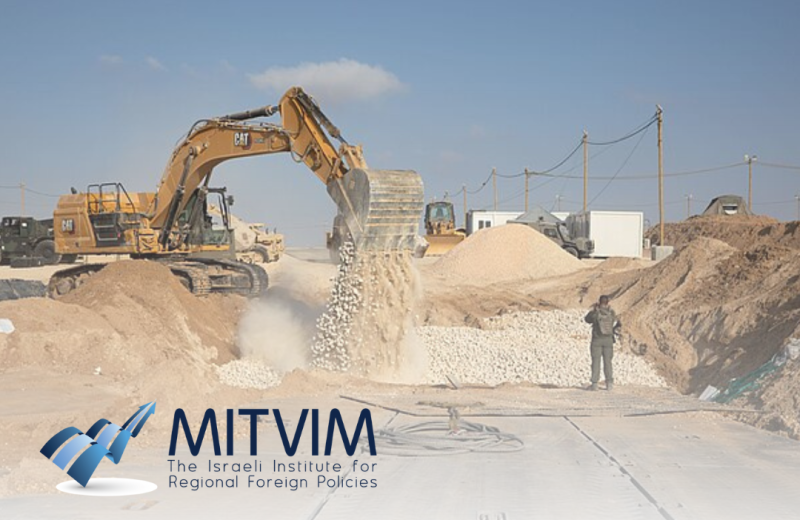
In recent weeks, a flood of words has been spoken about US President Donald Trump’s proposed “evacuation and reconstruction” plan for the Gaza Strip – both regarding its impracticality and its
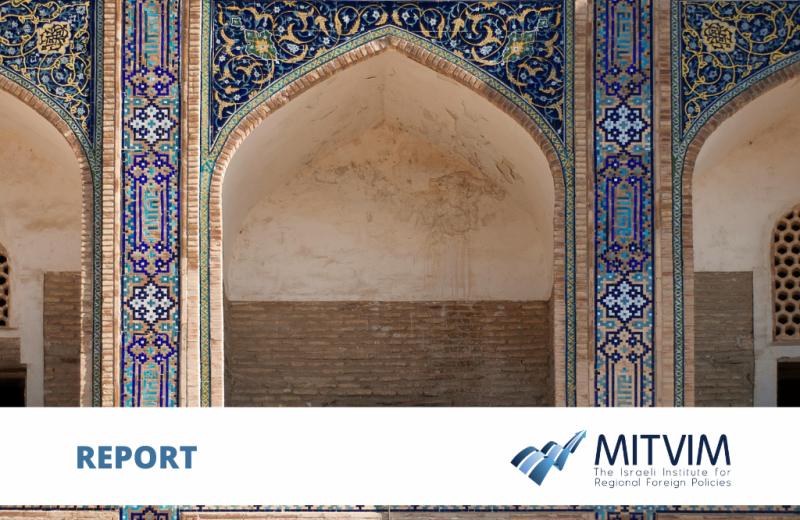
In September 2023, Mitvim – The Israeli Institute for Regional Foreign Policies – and the U.S. Department of State launched a joint project to create a civil-society network of regional thinkers

This policy paper explores the fast-moving expansion of the UAE’s influence in the Middle East through physical control of territories and assets beyond its borders, analysing the implications

As Washington and New Delhi prepare for the high-stakes meeting between President Donald Trump and Prime Minister Narendra Modi on Wednesday, defense cooperation takes center stage. This

On January 12, two seemingly unrelated events took place in Saudi Arabia. In the first, Real Madrid faced Barcelona in the final of the Spanish Super Cup in Jeddah. Thousands of Saudis filled the
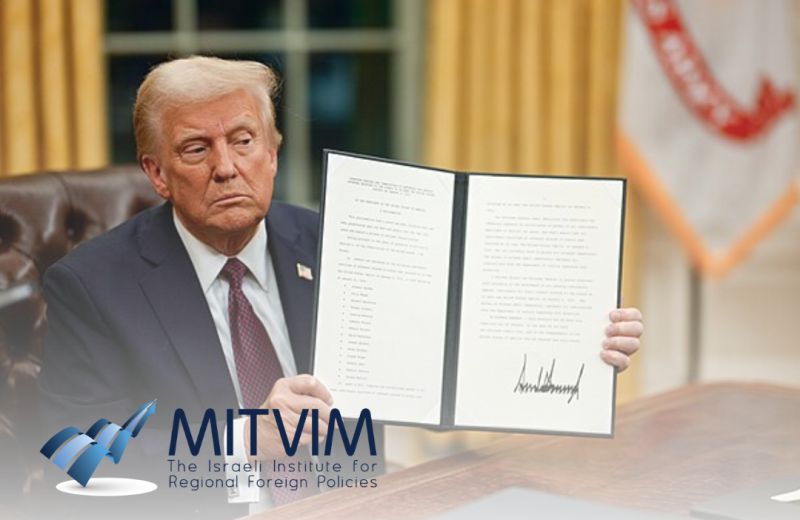
When President Joe Biden announced on Jan. 15, 2025 that the United States had successfully brokered a fragile ceasefire and phased hostage exchange between Israel and Hamas, he underscored how

Immediately after the signing of the ceasefire agreement with Hamas, incoming US President Donald Trump announced that, after the return of the hostages, he intends to continue the implementation

After 15 months of devastating news from the Middle East, a silver lining has appeared in the form of the Israel-Hamas cease-fire. The Israeli public has been waiting for this for months, with
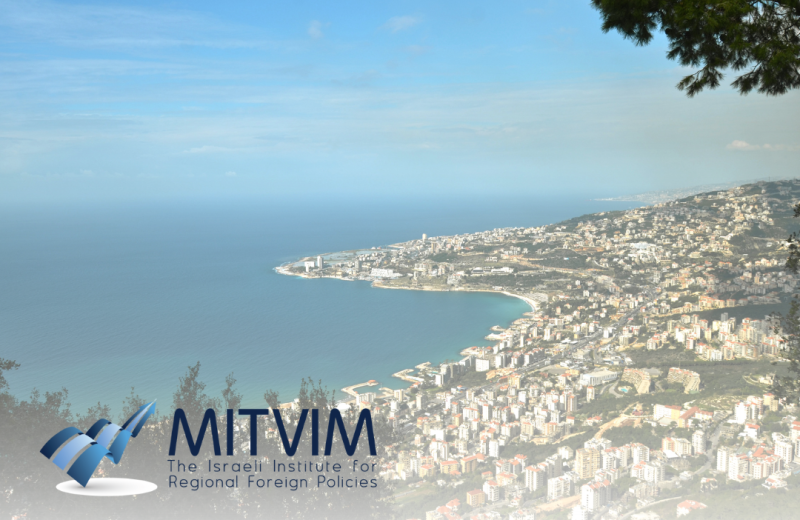
The election of the Christian Commander of the Lebanese Army, Joseph Aoun, as Lebanese president is an important milestone for Lebanon and a positive geopolitical development for Israel. It
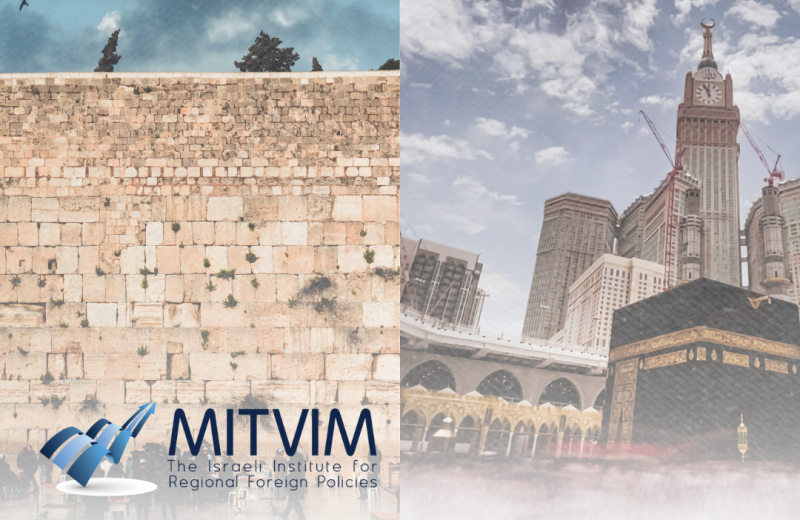
Last week, Saudi researcher Abdulaziz Alghashian, from the Observer Research Foundation Middle East, published an op-ed in Haaretz arguing that the Israeli public misunderstands Saudi Arabia’s

For decades, the Israeli peace camp has hoisted the two-state formula to the top of the flagpole as the solution to the conflict with the Palestinians. We believed that resolution of the “core of

I heard that Israeli media has been debating about the Saudi position regarding the way to end the war and move forward, and its obligation to the Palestinian issue. It seems that Saudi Arabia’s
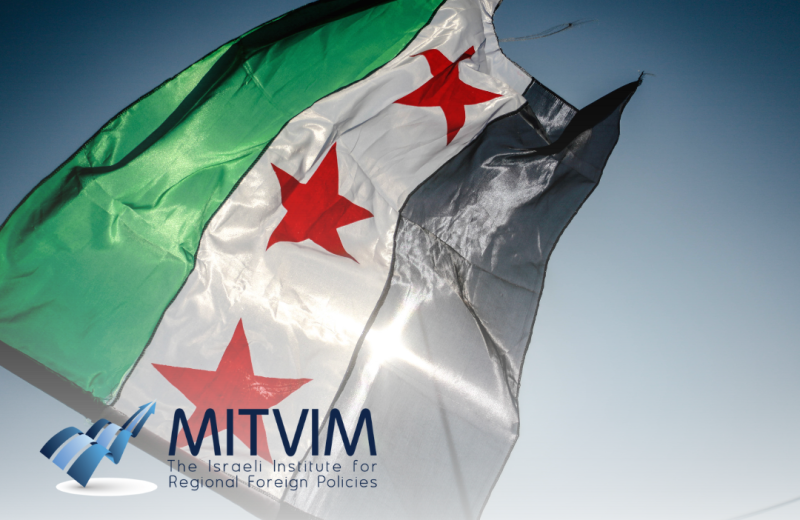
The collapse of the Assad regime confronts Israel with a familiar dilemma, one with which decision-makers grappled a decade ago in the early stages of the Syrian civil war. The question is
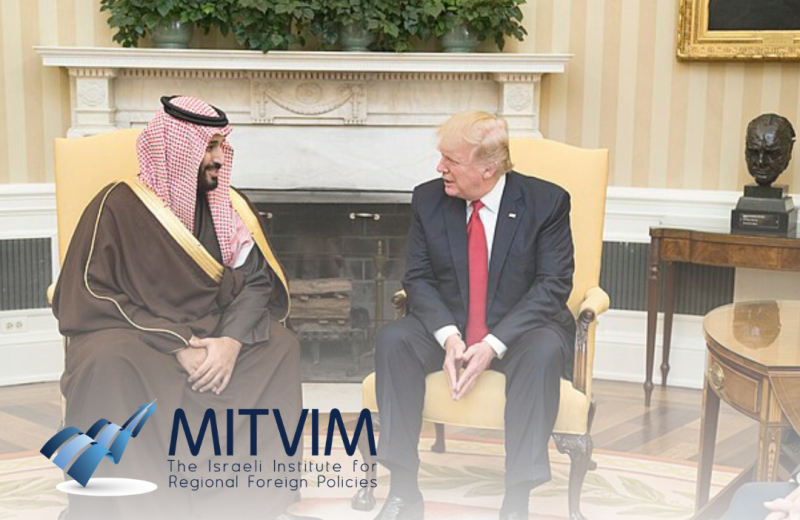
Throughout the Middle East, with the exception of Iran and its proxies, there was a collective sigh of relief at the reelection of Donald Trump as president of the United States. Given the choice
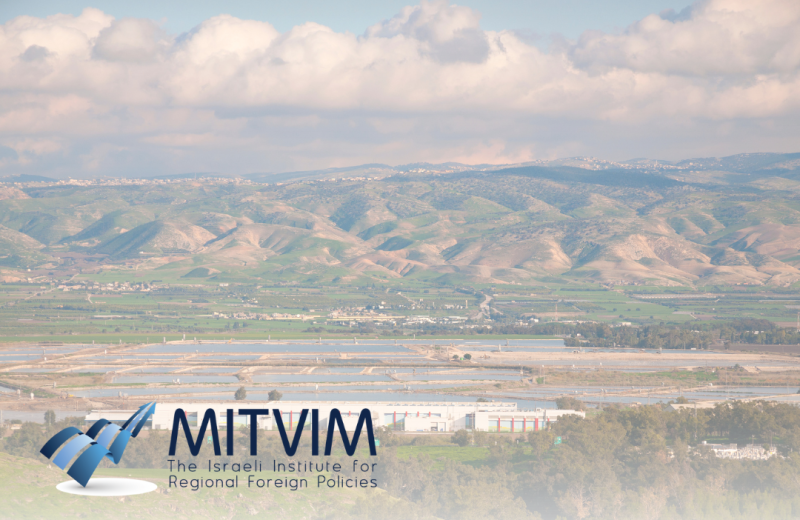
Relations between countries naturally ebb and flow. While high tides are often seen as a positive sign, low tides can strain these connections. As we mark the 30th anniversary of the peace
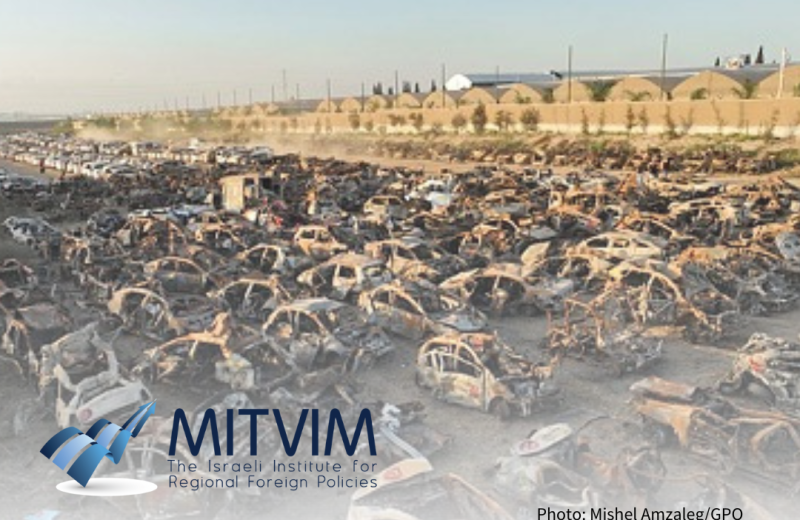
A year has elapsed since Hamas’s brutal attack on Israel, which ignited a war not only against the terrorist organization but also against the entire so-called Axis of Resistance led by the
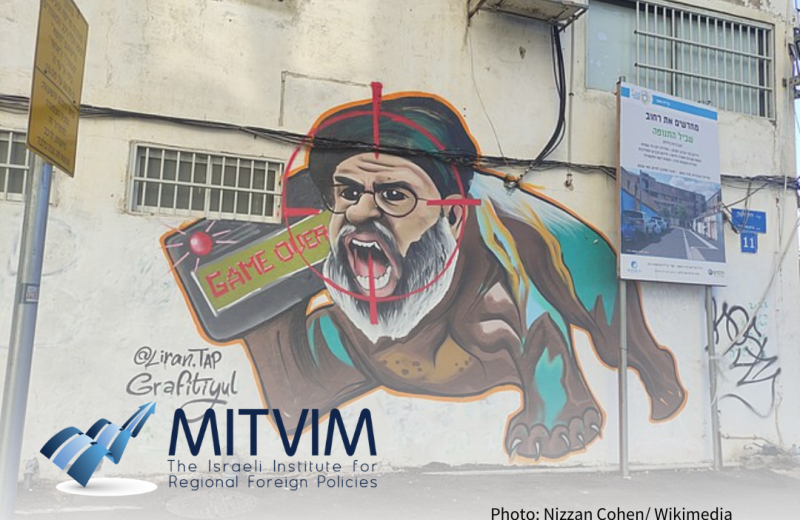
Israel’s apprehension of Hezbollah has arisen not only from the arsenal of rockets and missiles it has stockpiled but also from its hostile rhetoric and the image of Nasrallah as someone who
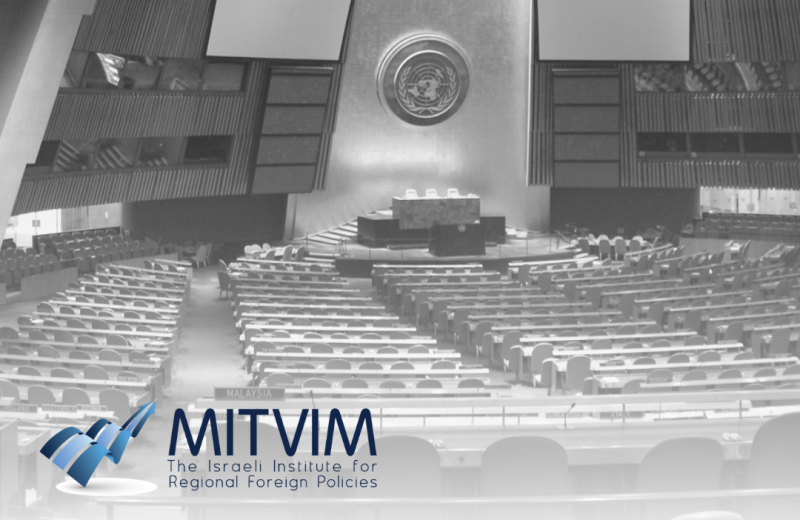
The United States, Europe and pragmatic Arab states are offering Israelis and Palestinians a way out of the abyss they fell into on 7 October 2023: a political process that includes the

Recent attention has turned to Jordan, following the murders of three Israelis at the Allenby Bridge Crossing. These killings have reignited fears in Israel about a potential deterioration in
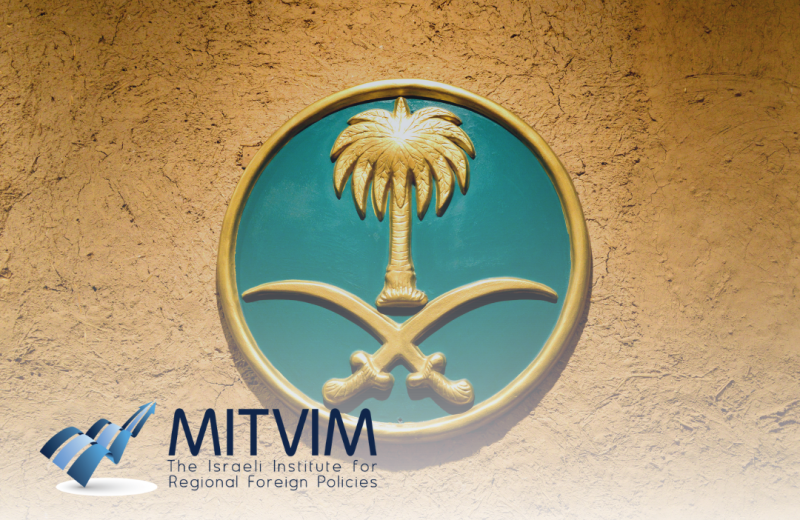
The paper aims to shed light on the obstacles and opportunities of Saudi involvement in a future Palestinian-Israeli peace process. It first explains the enigmatic nature of Saudi communication

The events of October 7 and the ensuing war prompt the question of the “day after” in the West Bank and Gaza Strip. Both sides of Israel’s political spectrum recognize that achieving
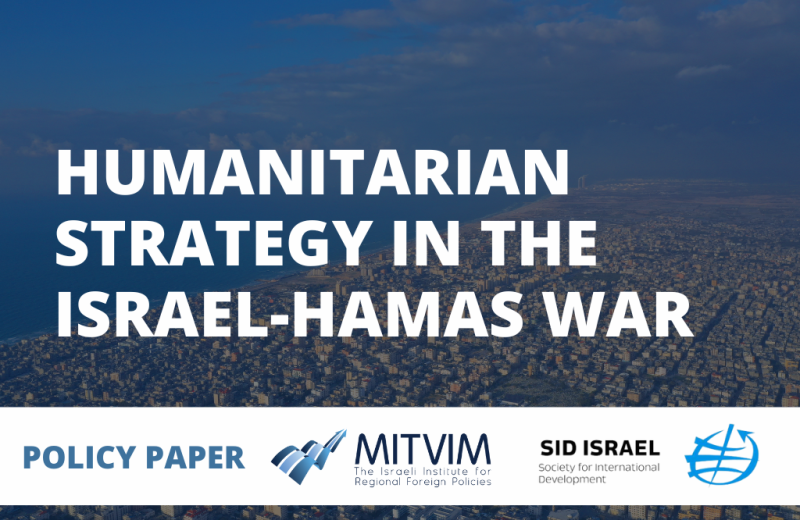
The document discusses the significance of developing a strategic policy for the humanitarian response in Gaza, emphasizing its importance as a vital Israeli interest. Humanitarian strategy is

The terrible attack in Majdal Shams is a chronicle of a disaster foretold for nearly nine months. It is the result of a lack of Israeli strategy on one hand, and Hezbollah’s assessment that

Normalization with Saudi Arabia has become a central issue during the Israel-Hamas war. Despite the great advantages the normalization holds for Israel, the current government is unable – and
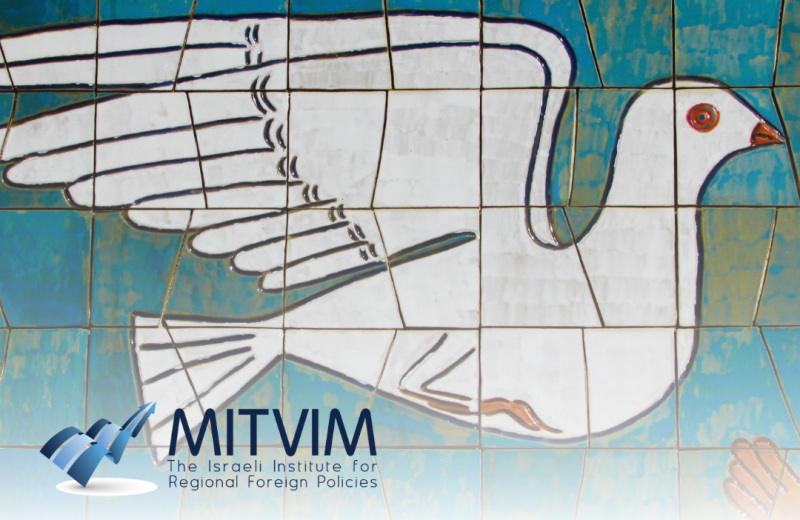
Peace between peoples doesn’t have to be a love story – it can also be based on an alliance of interests. There are places where that is already working, thanks to the process of
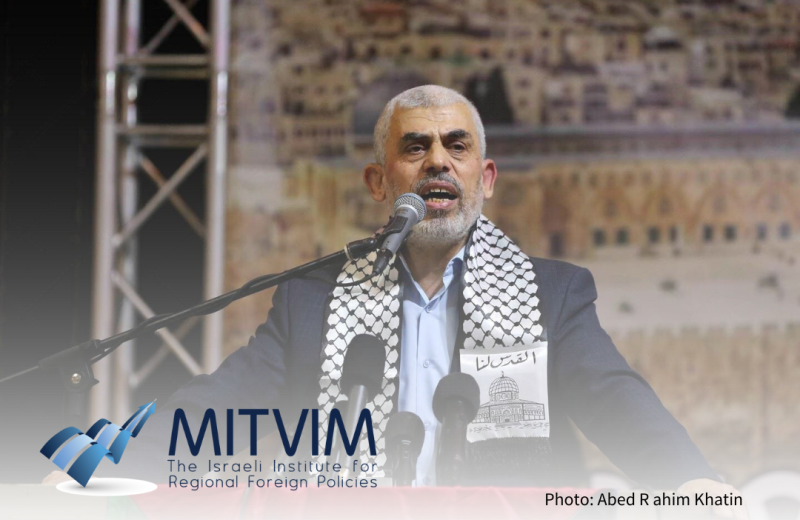
It is possible to suggest several explanations for the inability of the mediators to persuade Sinwar or to force his hand until now. How is it that Hamas, not a particularly large or strong

The Saudi proposal opens up the path to recognition of Israel by other states in the Middle East and in the Muslim world. An important factor in every negotiation between states is the incentives
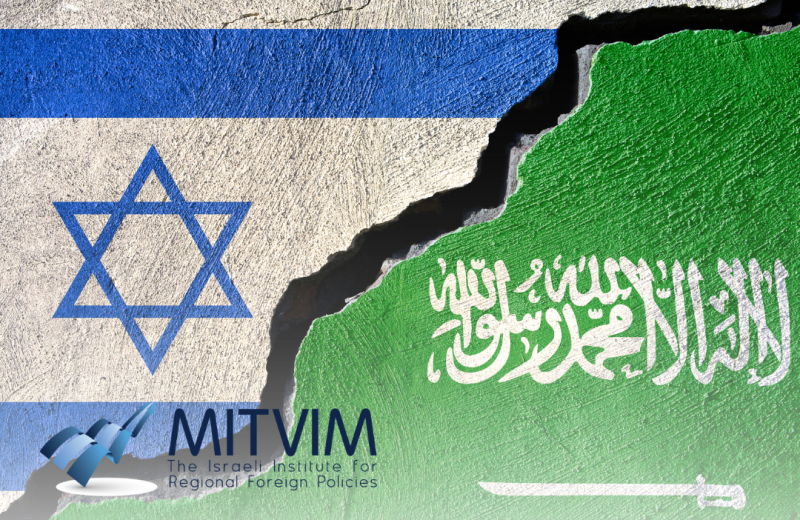
The intense diplomatic activity on the Washington-Riyadh axis, as well as statements by top officials on both sides, indicate that an Israeli-Saudi normalization agreement is still relevant

“The only thing we have in common with the Israeli government is that we also don’t believe in the two-state solution.” The speaker was not an Israeli far-right activist but Iranian Foreign
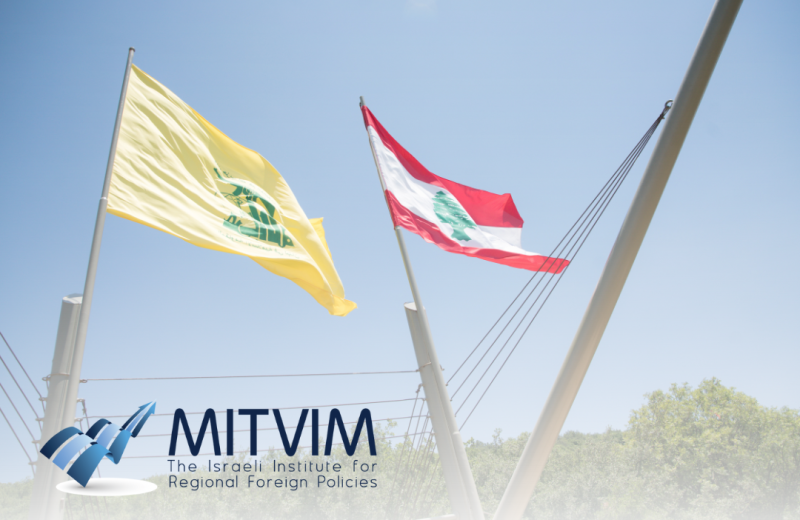
Over the past six months, the Israel-Lebanon border has been a battleground between Israel and Hezbollah. Recently, there has been an escalation from both sides, albeit within perceived
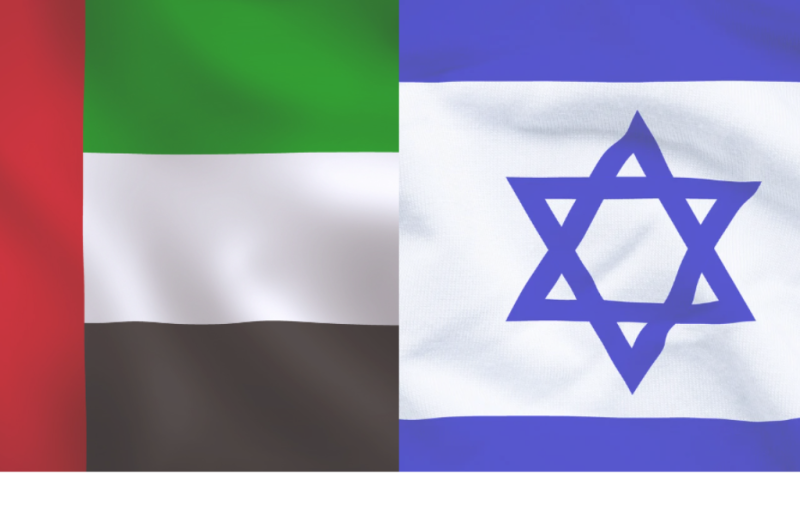
Early in the pandemic, a friend of mine introduced me to another friend of his, an Emirati living in the United Arab Emirates (UAE). Knowing that my academic research is focused on the

Based on past experience with normalization agreements, three components are presently missing on both the Israeli and Palestinian sides: legitimate leadership, political determination, and
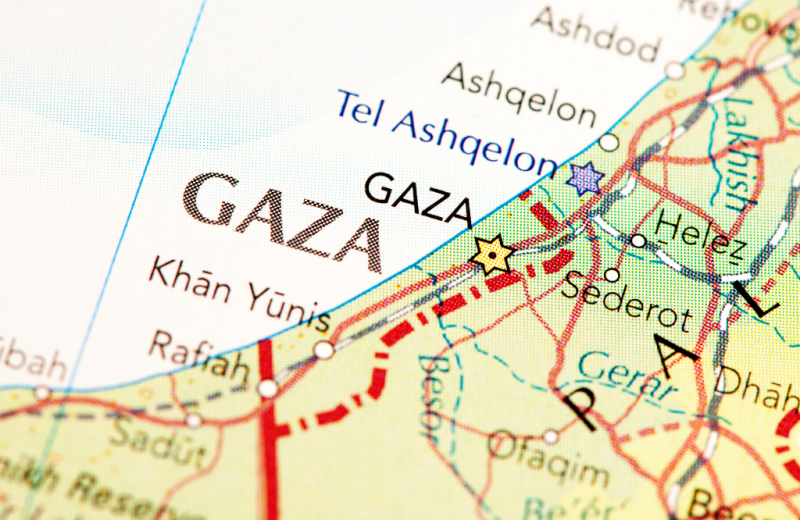
Israel’s success in stabilizing the humanitarian situation in Gaza correlates with minimizing harm to non-combatants. This provides greater flexibility for Israeli troops to defeat Hamas.
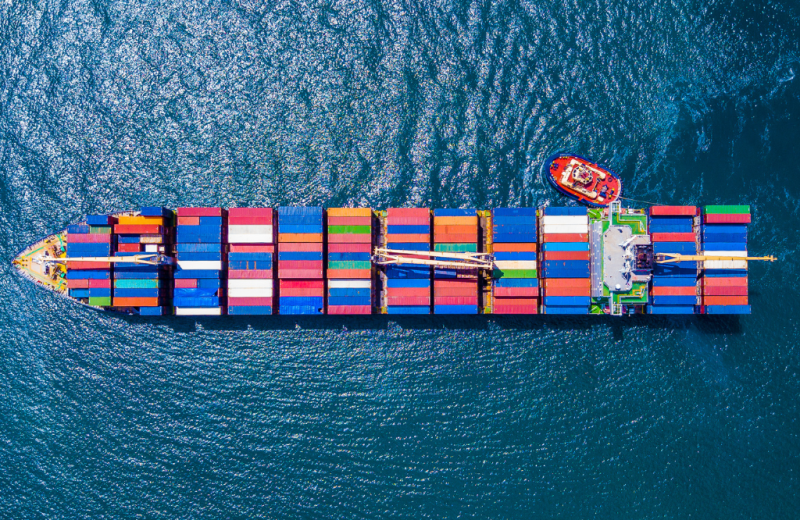
The sea may develop into an arena requiring greater Israeli effort, but could also create additional opportunities for international cooperation, and not only in the Red Sea.
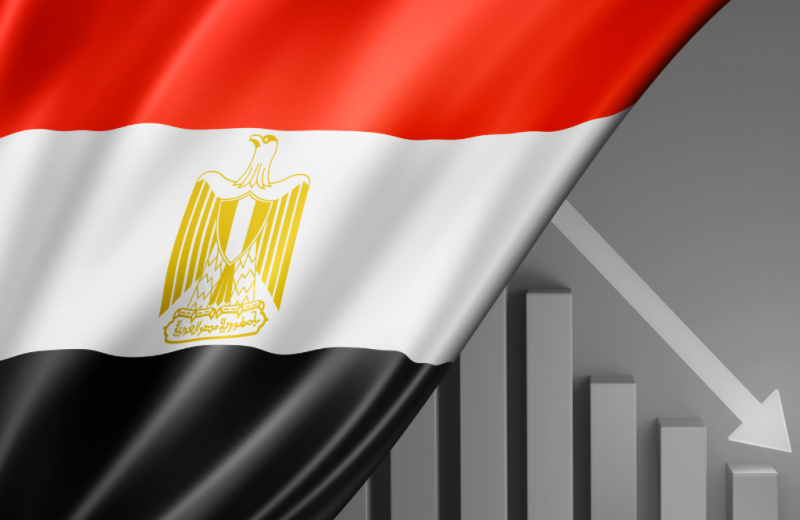
The Gaza war’s impact on Egypt’s economy is not hidden.
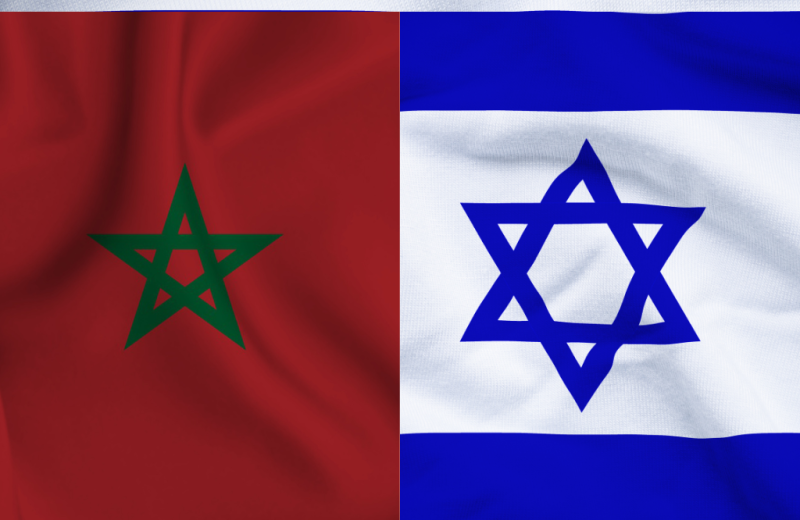
Three years after the resumption of official ties, and in the shadow of the Gaza war, the crisis provides a new opportunity for regional and bilateral cooperation between the two countries.
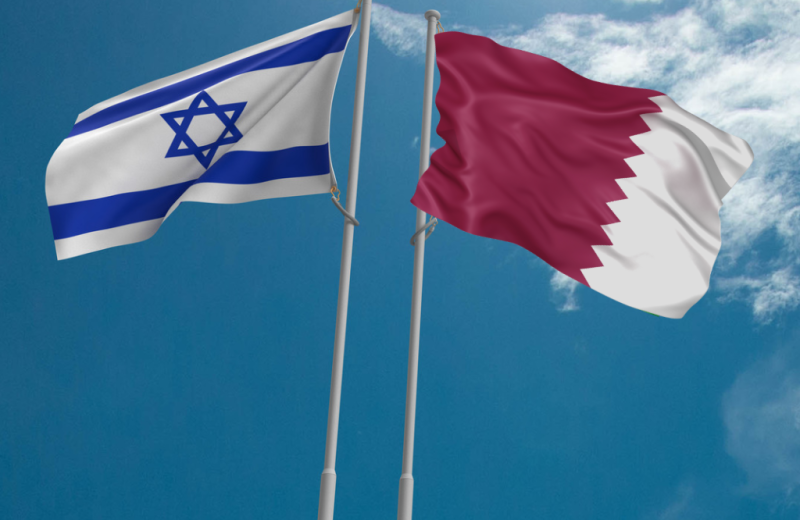
Qatar would exert a lot of influence to maintain its role in Gaza in the “day after,” yet Israel should seek to diminish this role as far as possible.

Israel lacks a clear, consistent and established strategy for its relations with Qatar, despite profound Qatari influence in the region. Since the 1990s, Israeli decision-makers have faced the
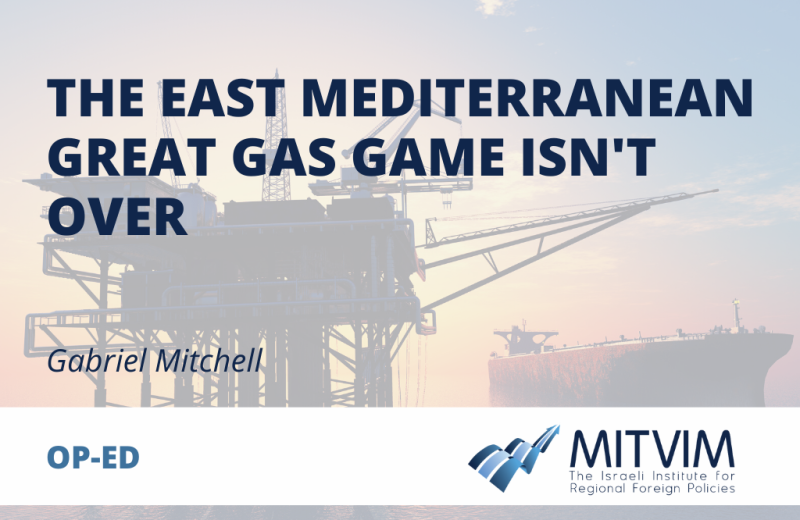
In order to increase its energy security, Israel must therefore continue to seek ways of diversifying its export options and regional partners.
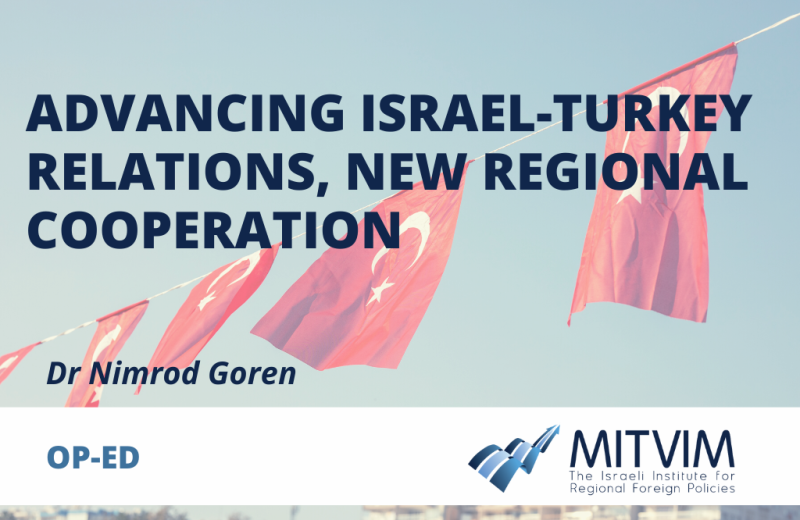
Turkey and Israel should aim – as part of their strategic dialogue – to identify concrete contributions that Turkey can make to improve the situation.
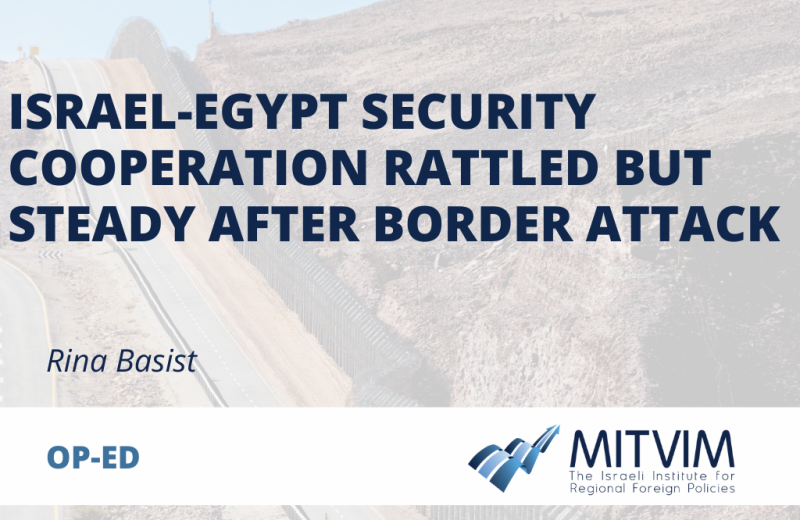
While Israel mourns its three soldiers killed by an Egyptian policeman, both countries need for the security cooperation between them to continue.
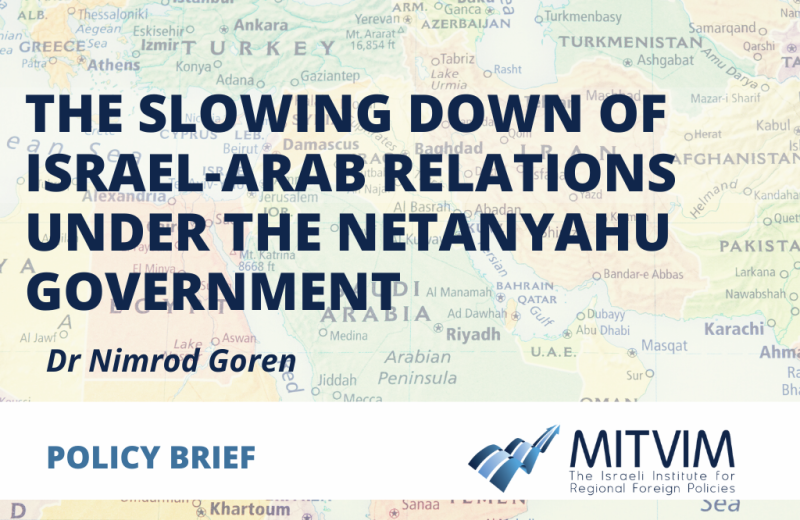
During the Netanyahu government’s first five months, Israel-Arab ties have slowed down and tensions with the Palestinians have increased.
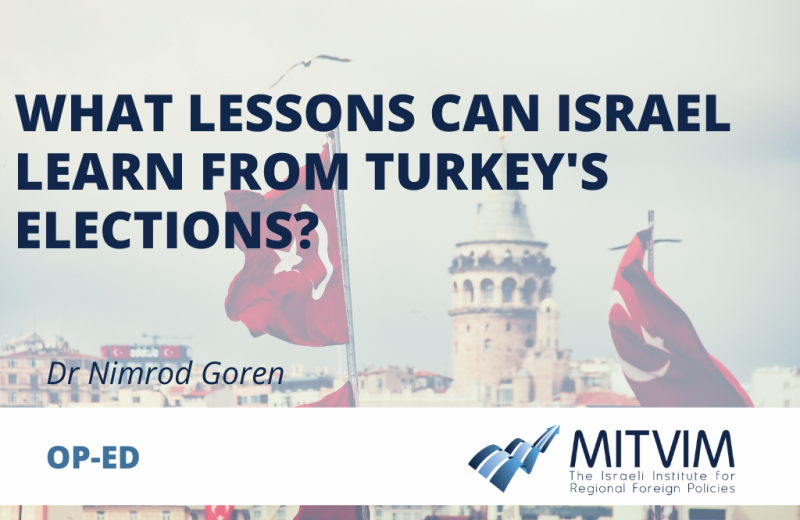
Concern in Israel’s pro-democracy camp that democratic erosion processes in Turkey are similarly emerging in Israel under Netanyahu’s enduring rule.
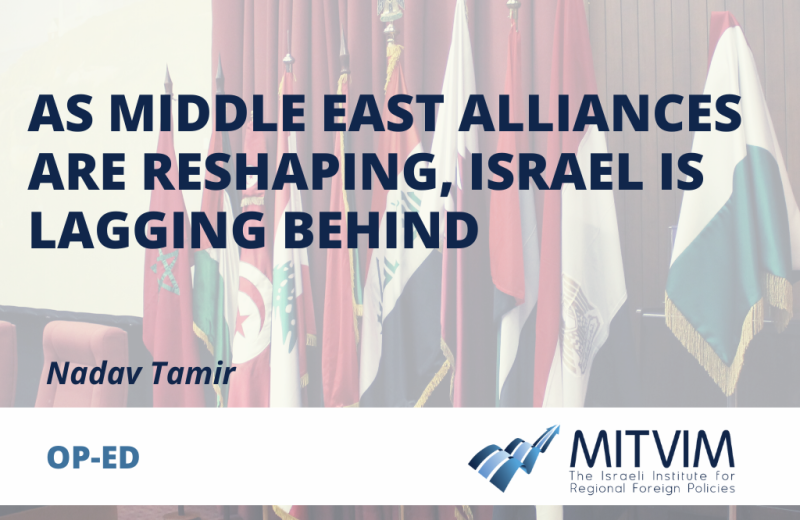
Saudi Arabia, Iran, UAE, Syria, Russia, and China are creating a new strategic reality while Israel is too focused on short-sighted tactical operations and fraying ties with Washington
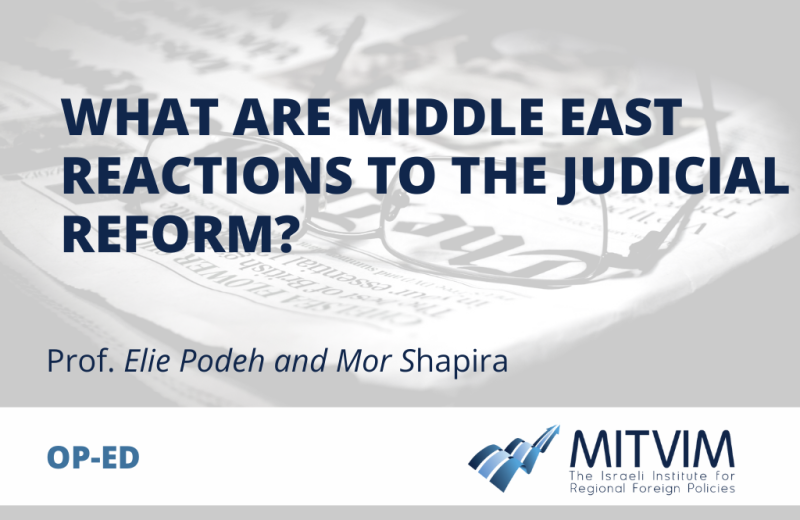
‘Israel is devouring itself from within” was the headline of an article by Saudi pundit and businessman Hussein Shobokshi in the influential Arab newspaper Asharq al-Awsat. Shobokshi argues that
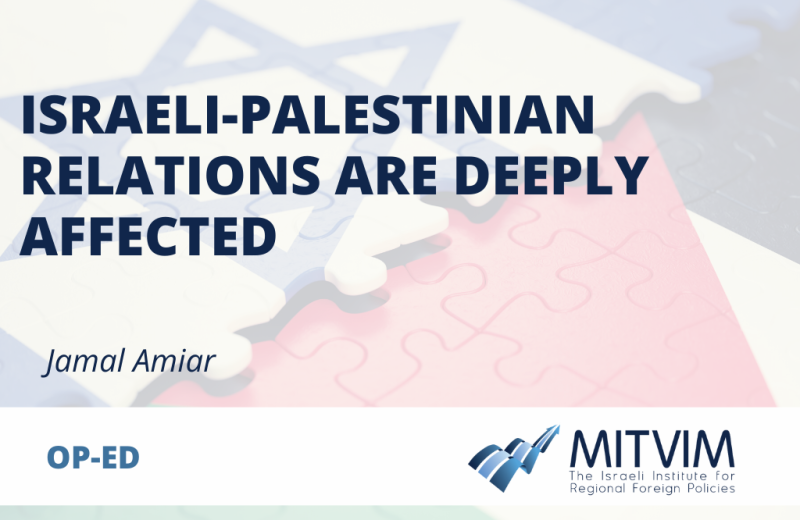
The project of the present Israeli governing coalition to overhaul the organization and powers of the High Court will have deep implications on Israeli-Arab relations if it succeeds. Given the
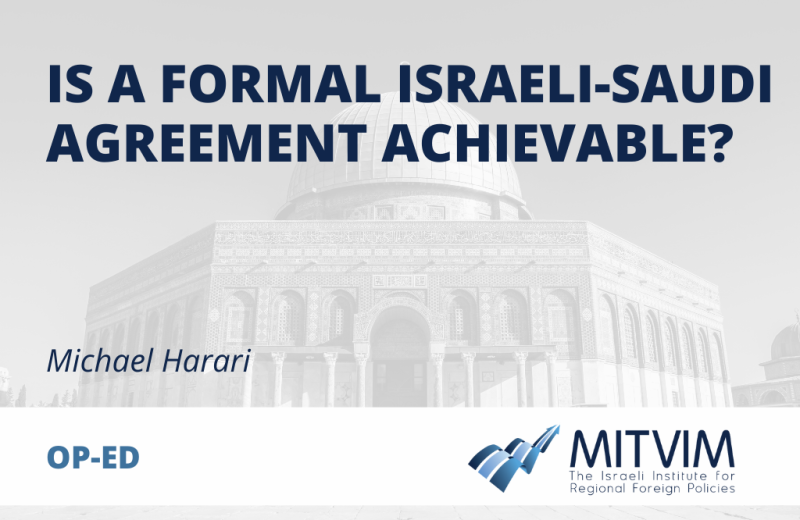
In recent days we have come across reports in the media, about talks promoting a possible Israeli-Saudi agreement, which took place between Israel and Saudi Arabia, even before the establishment
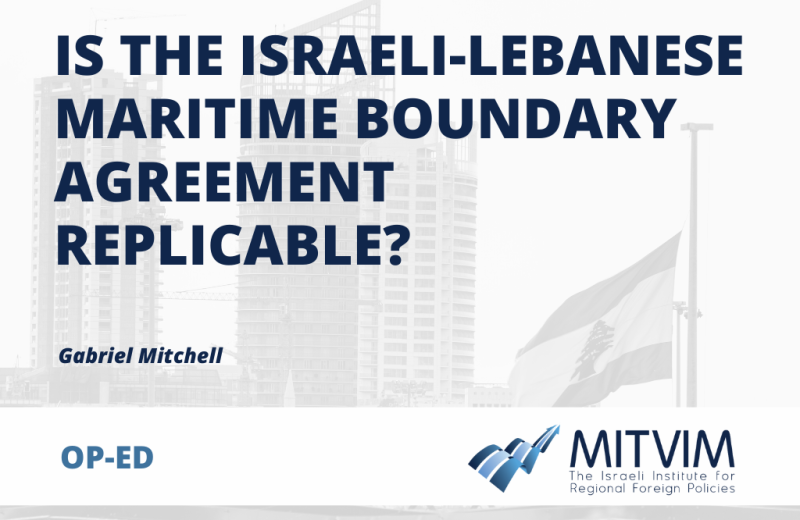
For the past decade, policymakers have argued that the Eastern Mediterranean’s offshore natural gas deposits could help support Europe’s efforts to wean itself off Russian hydrocarbons. But
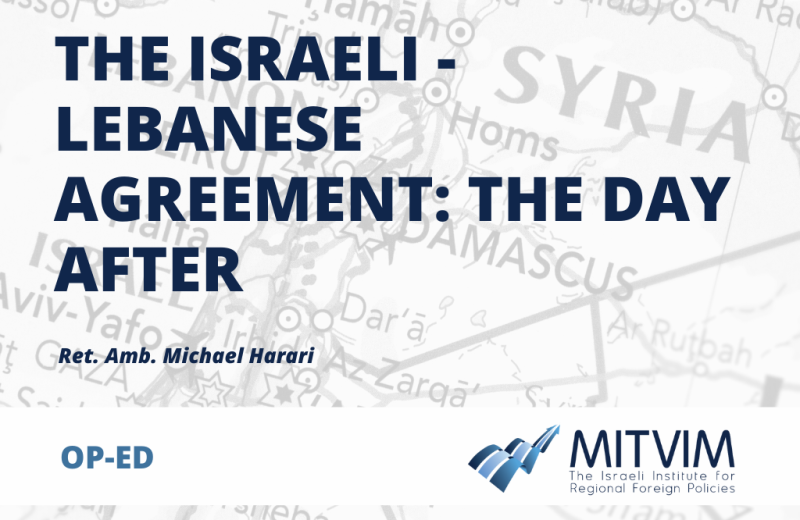
The agreement between Israel and Lebanon on the maritime border constitutes a significant development for each of the two countries, as well as for the regional and international arena. After
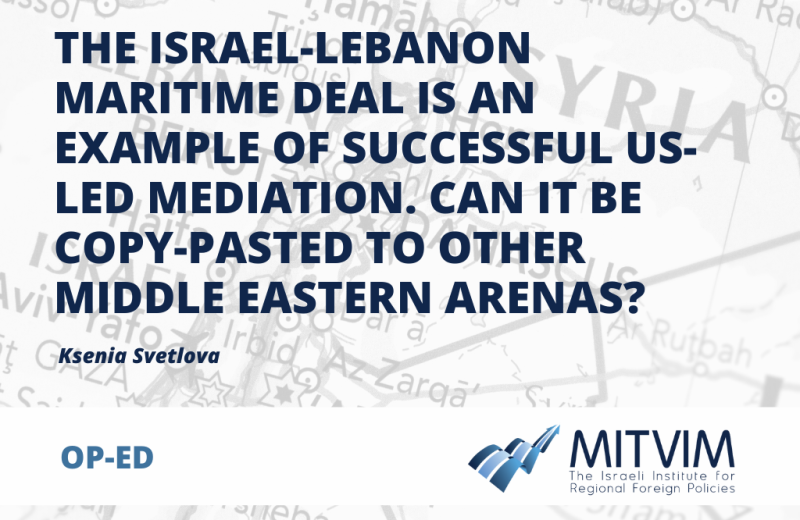
After a decade of tough negotiations, frustrations, and impasses, American mediators succeeded in a difficult task. On October 26, they convinced Israel and Lebanon the importance and need for a
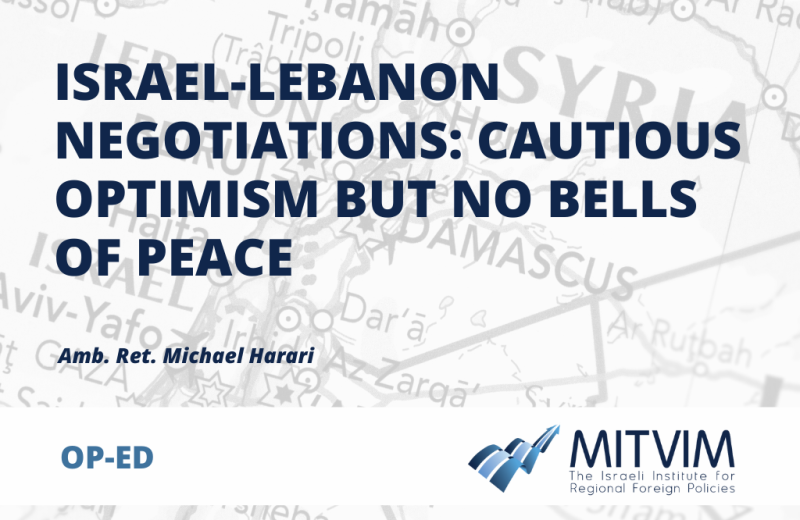
Negotiations on marking the Israel-Lebanon maritime border began on October 14 under unique circumstances, against the backdrop of the unprecedented economic and political crises in Lebanon.
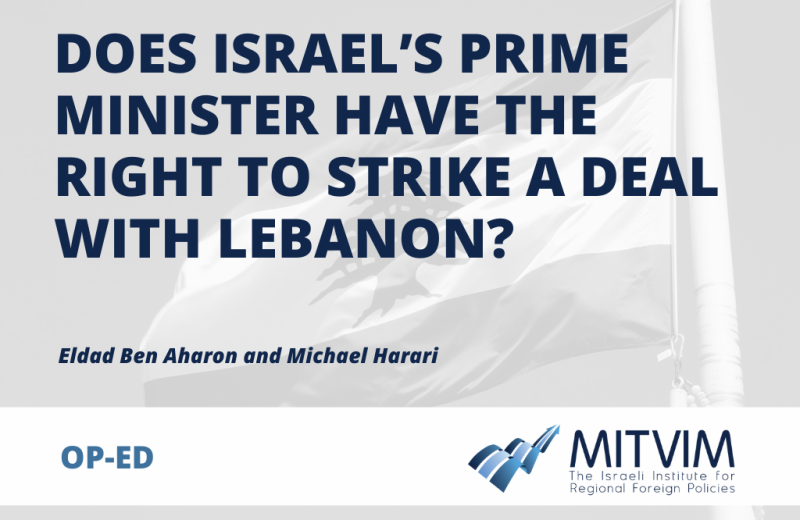
The nearly concluded yet still on-off negotiations between Lapid’s caretaker government and Lebanon regarding their maritime border raises a crucial question: Do Israel’s provisional governments
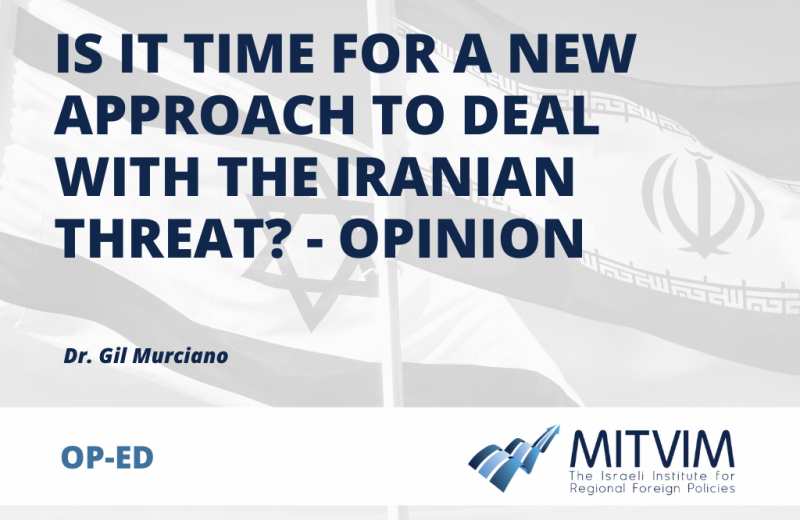
Tough times are ahead for decision-makers in Jerusalem. As the clock ticks in Washington, Brussels and Tehran, counting down to Iranian nuclear breakout capability and international pressure

Every visit by a foreign leader to Iran draws considerable attention, not to mention criticism, in Israel. A visit, however, by Russian President Vladimir Putin, the leader of a global power
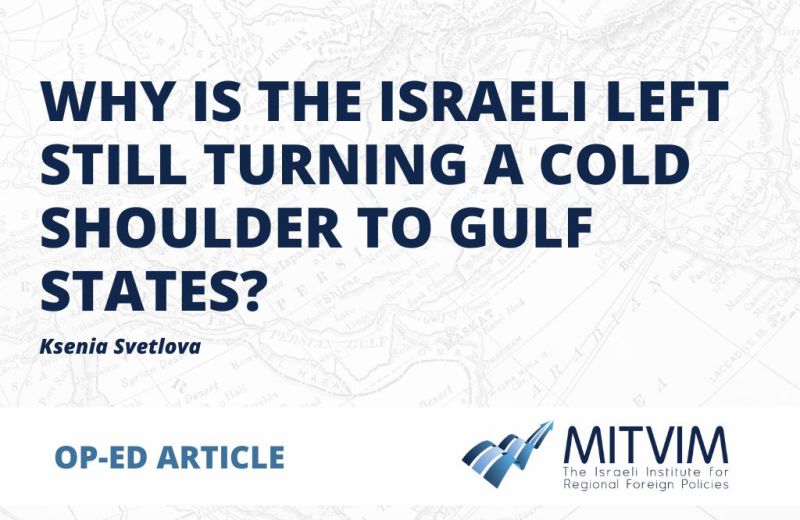
This past April 28, Holocaust Remembrance Day, Dan Feferman stood at the entrance to Auschwitz. With him were the members of the multinational delegation he had brought to the annual March of the
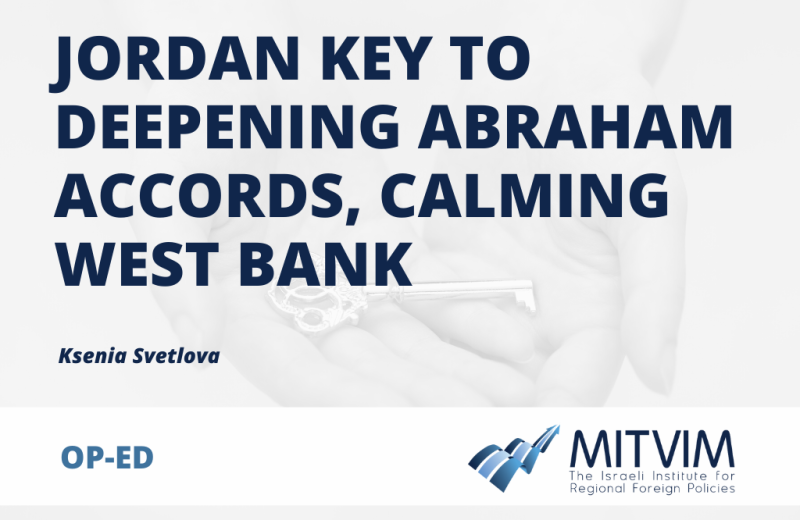
Israelis and Jordanians no longer hide their willingness to cooperate, but King Abdullah’s complex internal situation and mounting tensions at Al-Aqsa Mosque may impede rapprochement. Relations
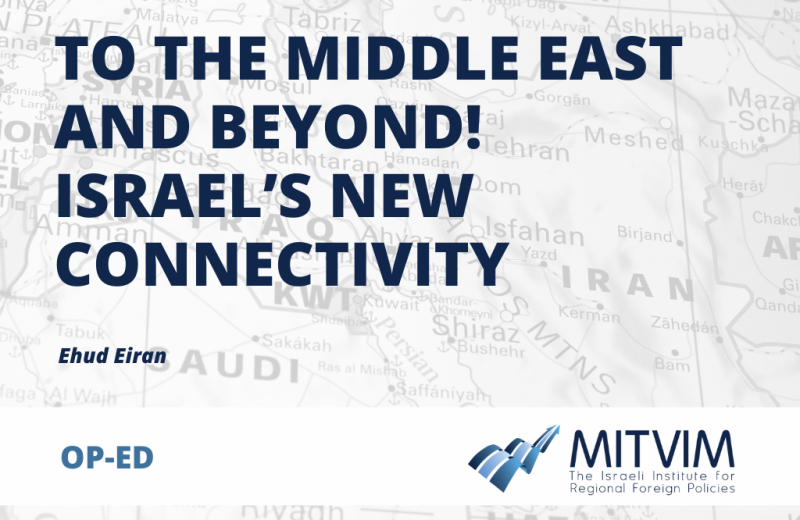
After decades of limited contact, Israel is connecting with its region at the strategic level. It seems safe to assume that more is yet to come. Largely rejected by its neighbors for decades,
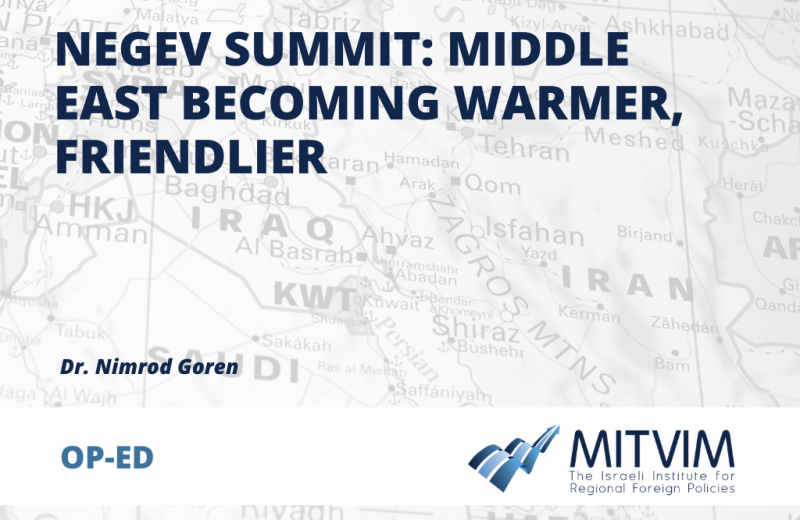
The public elements of the Negev Summit were full of positive atmosphere, expressions of personal warmth, and mutual compliments. It did not seem as one of those summits in which concerned
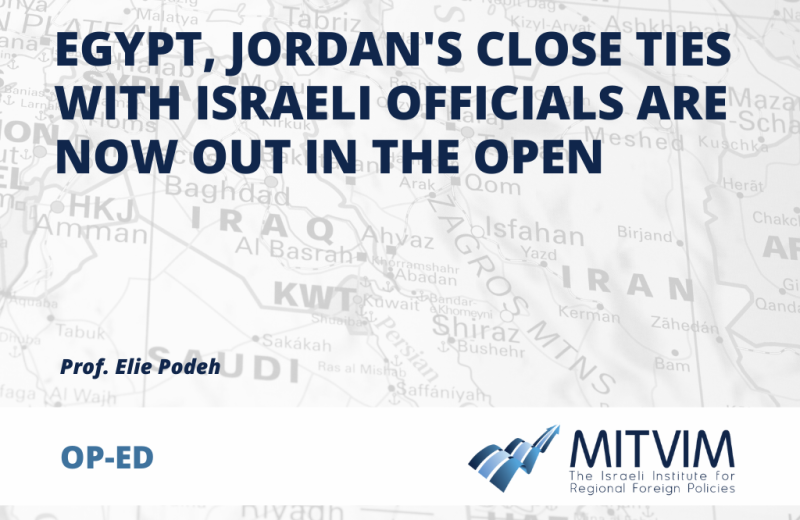
As the Russian war in Ukraine settles into a deadly routine, events in the Middle East are anything but routine. On March 18, Syrian President Bashar Assad visited the United Arab Emirates (UAE),

Twenty years ago, in the midst of the al-Aqsa Intifada, Arab leaders convened in Beirut for their annual summit and adopted the Arab Peace Initiative (API). The move followed the failure to reach

During the last few decades Saudi Arabia had exercised a role of a regional coordinator between various Middle Eastern states and between them and the USA. Twice in the past it had put on the
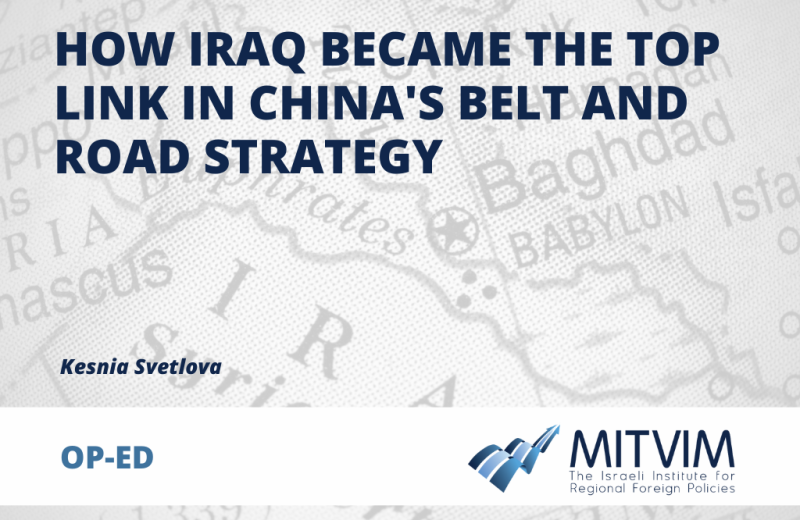
Last year, Iraq became a top recipient of Chinese investment and a key link in Beijing’s Belt and Road initiative. Almost 20 years after the war in Iraq began, billions of Chinese yuan are being

In 2022, Sheikh Hassan Nasrallah will celebrate 30 years as the undisputed leader of Hezbollah in Lebanon—upholding a pattern of Arab leaders who mature, age, and often die while in power. It was
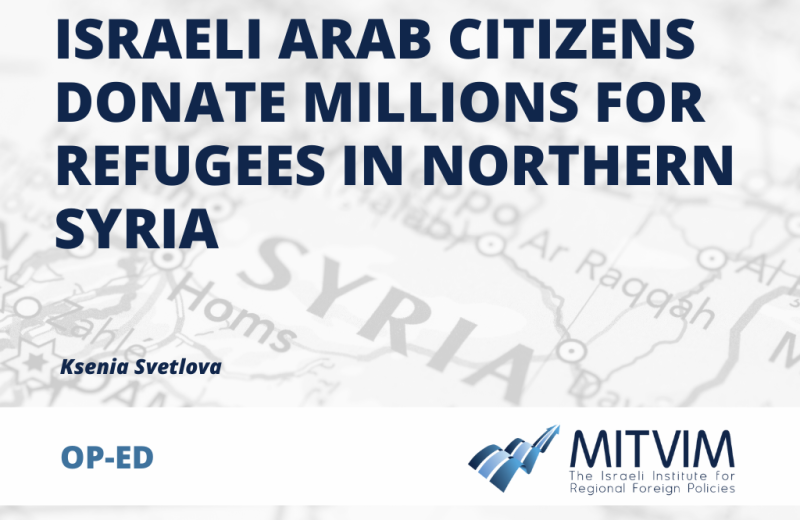
“Your donations have reached #Northern_Syria. One of the largest convoys of a charitable relief campaign has been launched to reach the needy and refugees and to protect them from the winter
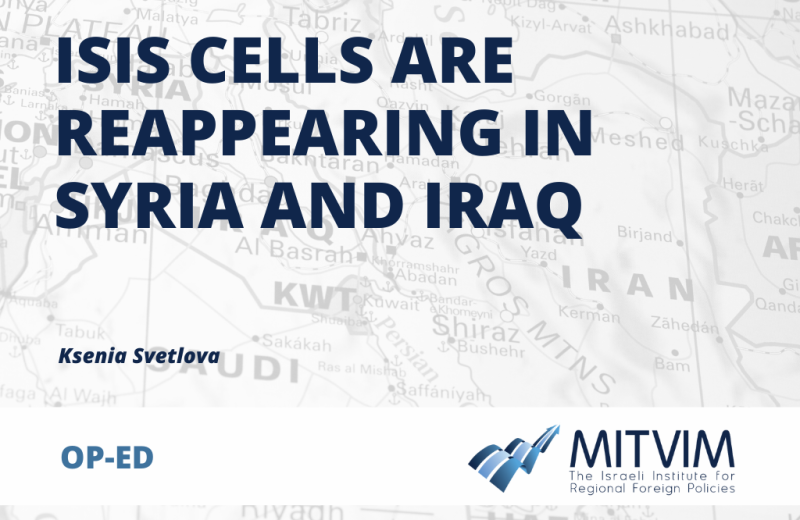
More than 100 Islamic State fighters armed with heavy machine guns and vehicles rigged with explosives attacked the gates of Gweiran Prison in the northeastern Syrian city of Hasakeh. The goal of
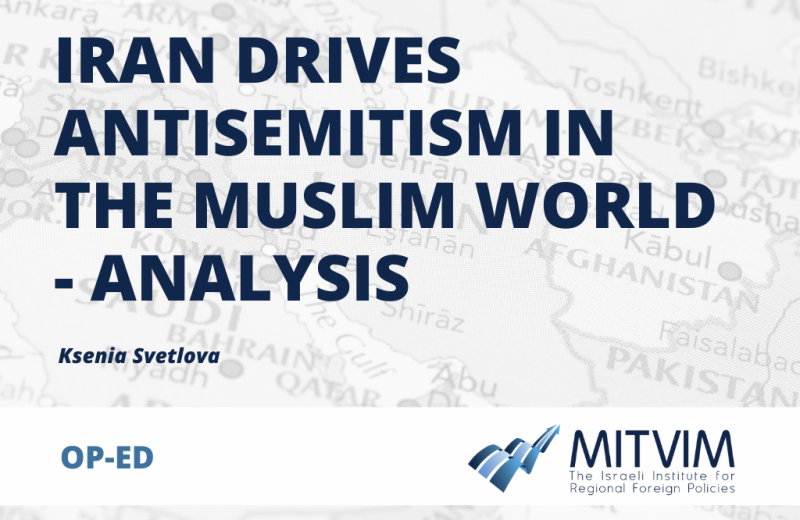
When Iranian General Alireza Tangsiri, the commander of Islamic Revolutionary Guard Corps Navy, said that Saudi Arabia’s royal family actually descends from Jews who used to fight with the
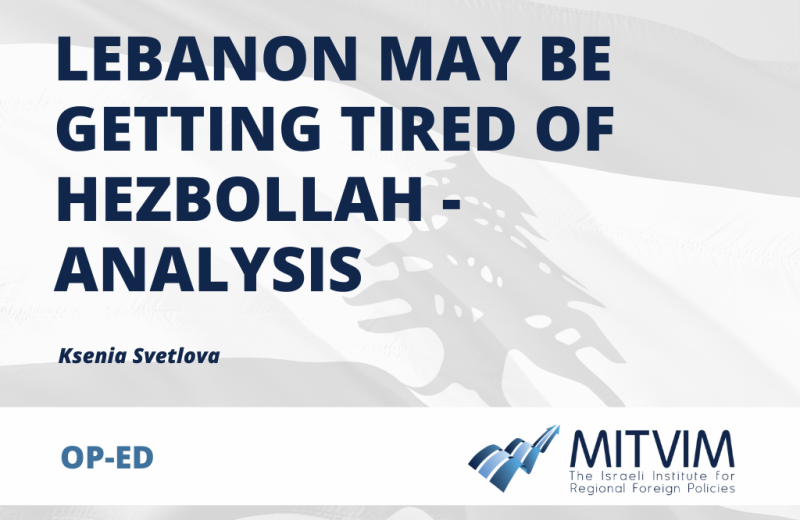
First, it was Gebran Bassil, leader of the Free Patriotic Movement (FPM) and the son-in-law of Lebanon’s President Michel Aoun, who attacked the Shia Islamist political party Hezbollah and said

Can President Putin be a “great friend of the Jewish people”, as Naftali Bennett called him, and at the same time sell sophisticated weapons to Iran, a sworn enemy of Israel? Bennett’s goal is to
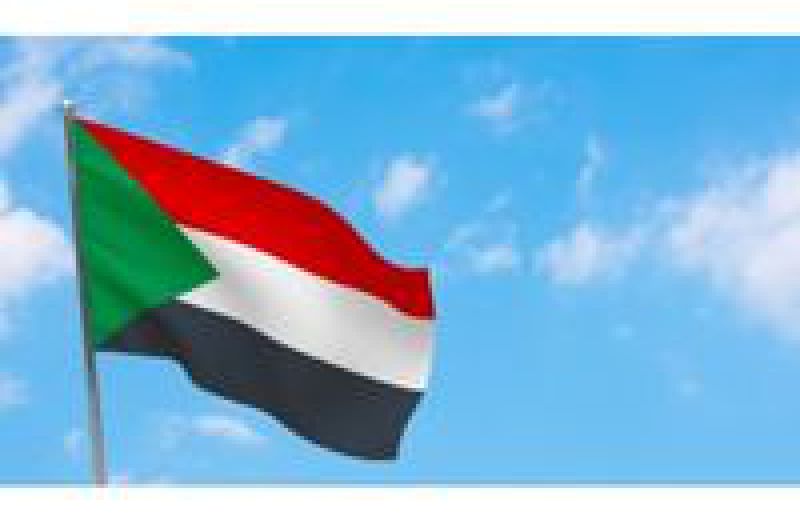
The October 25 military coup in Sudan was led, surprisingly, by incumbent President Gen. Abdel Fattah al-Burhan, head of the civilian-military Sovereign Council formed to oversee the transition

A Sept. 24 conference in the Kurdish capital of Erbil, attended by some 250-300 Iraqis, issued an unprecedented call for establishing full diplomatic relations between Iraq and Israel. News of
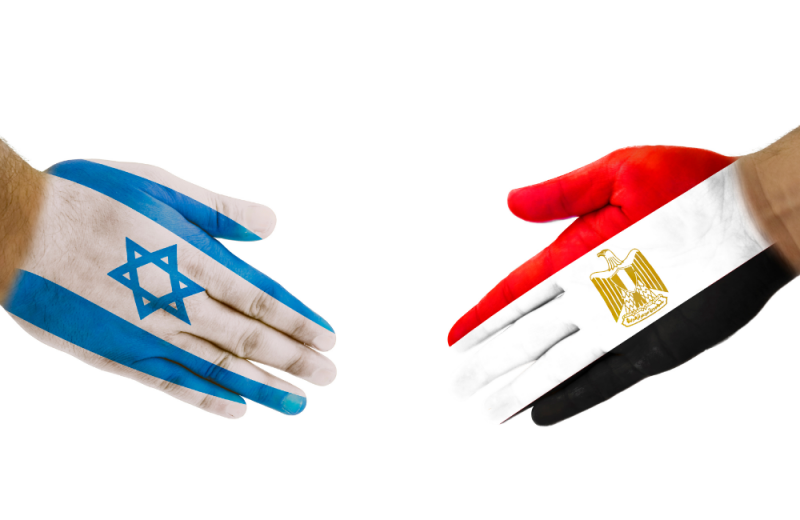
Shortly before Yom Kippur, Prime Minister Naftali Bennett held his first official visit to an Arab state, meeting in Sharm El-Sheikh with Egyptian President Abdel Fattah a-Sisi. The invitation

On July 7, 2021, a few hundred Palestinians gathered to attend a funeral at Yarmouk refugee camp cemetery, on the outskirts of Damascus. They came to say their farewells to Ahmad Jibril, the

Summary of remarks by Minister for Regional Cooperation Essawi Frej in a conversation with Mitvim Institute President Dr. Nimrod Goren at a Meretz Party event on 22 September 2021 Israel’s

The Netanyahu government took pride in achieving “peace for peace”, but the Gulf principalities are once again moving closer to Iran. Bahrain appears the only Gulf State still adhering to the
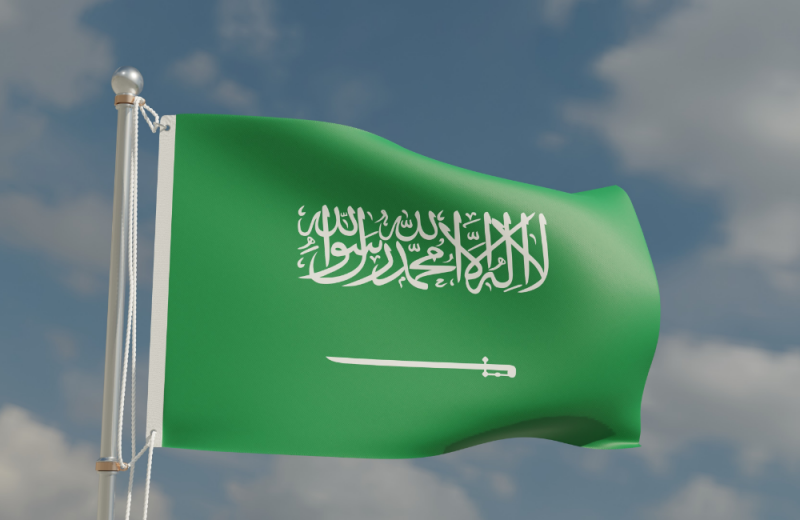
In the year since Israel’s signing of normalization agreements with the UAE and Bahrain, and subsequently with Morocco, Israelis have debated repeatedly whether Saudi Arabia would be next in

The recent attacks on Israeli-owned and operated shipping in the Arab Gulf served as a valuable lesson for Israel. It proved the limitations of using military power in its campaign against Iran,

he Baghdad conference held on Saturday, August 28, was unusual in terms of both venue and participants. The venue was Baghdad, the host was Iraqi Prime Minister Mustafa al-Kadhimi, and

On his historic June 30 visit to the Emirates for the official opening of the Israeli Embassy in Abu Dhabi and consulate in Dubai, Foreign Minister Yair Lapid urged other Muslim and Arab states

Some international concern has been voiced about the future prospects of the Abraham Accords under Israel’s new government. This stems from the perception that the normalization agreements Israel

Earlier this month, Jordan officially decided to pull out of the high-profile “Two Seas Project” – a joint endeavor with Israel and the Palestinian Authority to construct a canal that

Egypt disappeared from the Middle East after the 2011 Arab Spring. Well, the term “disappeared” is perhaps too strong, but it certainly adopted a lower profile. Anyone accustomed to Egypt’s
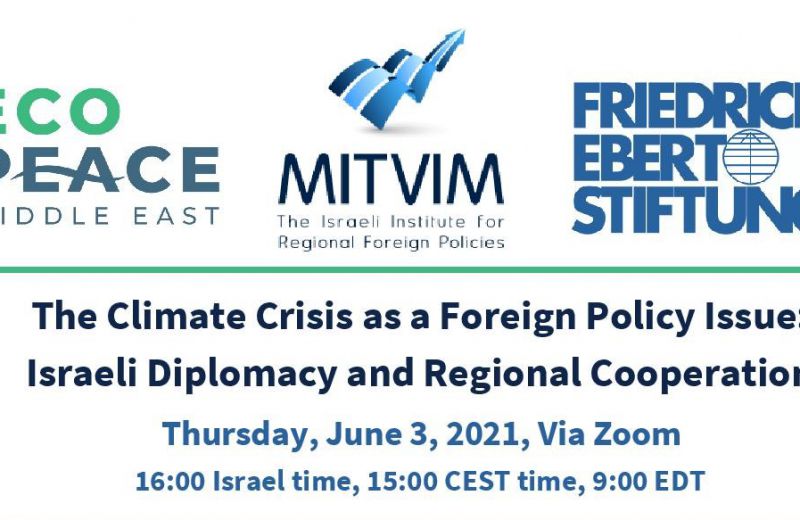
Understanding the critical importance of climate change on both local communities and international relations, especially in the Middle East, Mitivm and EcoPeace hosted a joint conference on June

The “War between the Wars” doctrine has become the key concept of Israel‘s national strategy over the past decade. This open-ended military campaign has provided a convenient
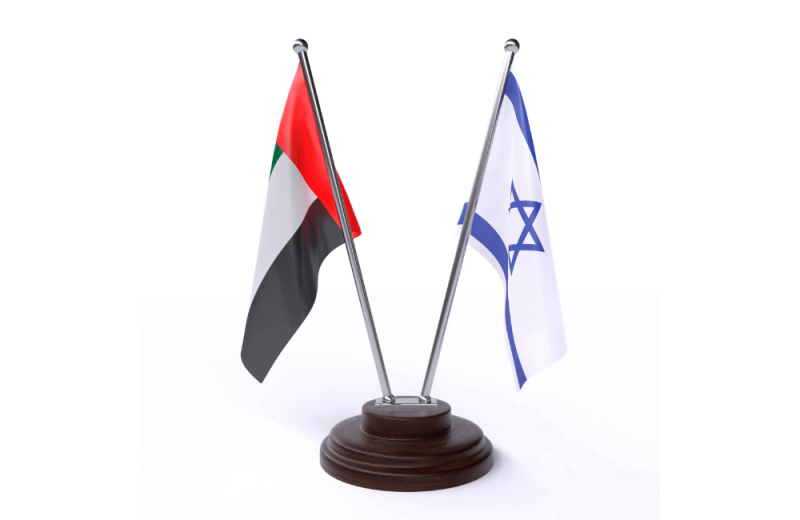
Introduction In the few months that have passed since the signing of the historical Abraham Accords, Israel and the UAE have opened embassies and exchanged ambassadors, launched direct flights
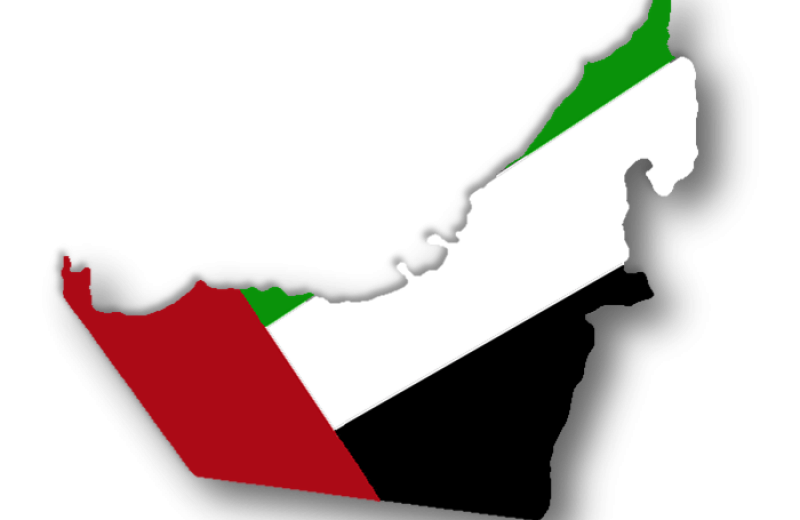
Since its founding, the United Arab Emirates has displayed solidarity with the Palestinians’ national aspirations, adhered to its support for the establishment of a Palestinian state, and called

Lebanon’s surprising decision earlier this month to expand its territorial claim by 1,430 square kilometers (552 sq. miles) further complicates the already complex maritime border negotiations

“Jordan is an artificial state with no future,” then-prime minister David Ben-Gurion declared shortly before the 1956 Suez Canal War. His assessment was echoed by Western intelligence agencies.
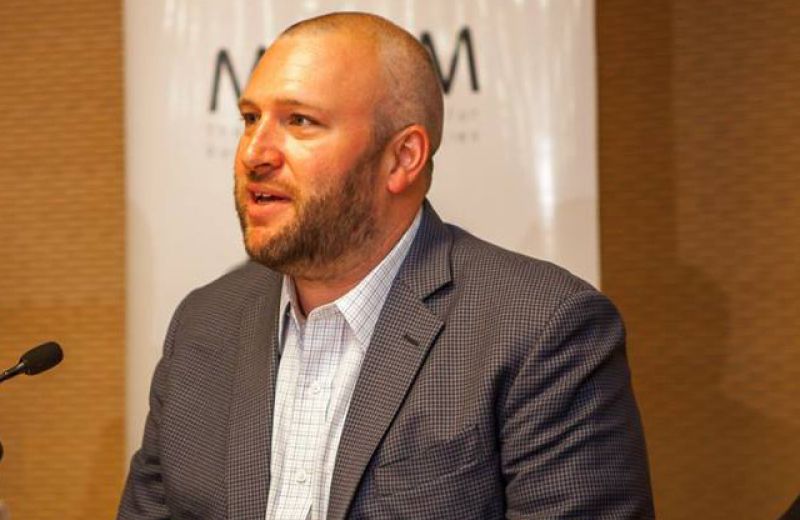
On March 9, Israeli Intelligence Minister Eli Cohen met with his Egyptian counterpart Nasser Fahmi in the resort town of Sharm El-Sheikh, located at the southernmost tip of the Sinai Peninsula.
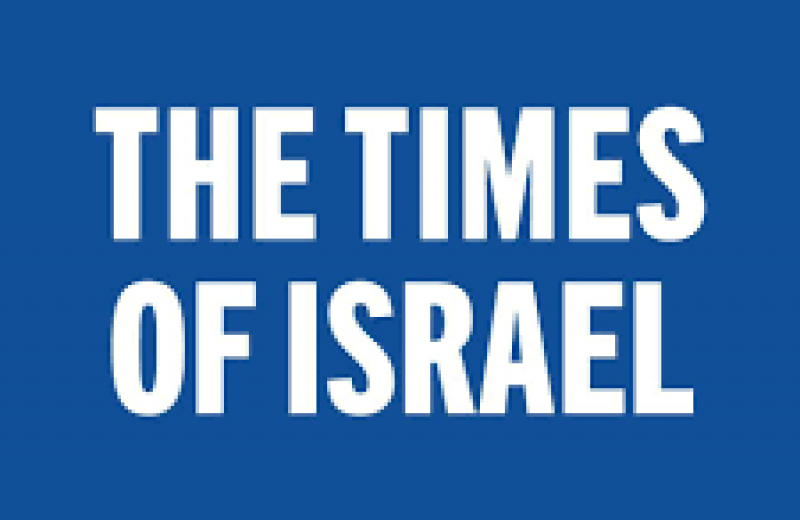
The resumption of diplomatic relations with Morocco may restore a “crown to its former glory” (Atara Leyoshna). On the eve of Passover this year, I am most looking forward to the Mimuna holiday —

The news of Israeli Prime Minister Netanyahu’s planned visit to Egypt came shortly after popular Egyptian singer Mohamad Ramadan became the most hated person in his country; Ramadan was pictured

Research collaborations between Israel and the UAE is a touchstone to scale the nature of the relations between them. Academic, scientific, and technological cooperation was explicitly mentioned

In one of its final decisions, the Trump administration moved Israel from the purview of the Pentagon’s European Command (EUCOM) to the Area of Responsibility (AOR) of the US Central Command

